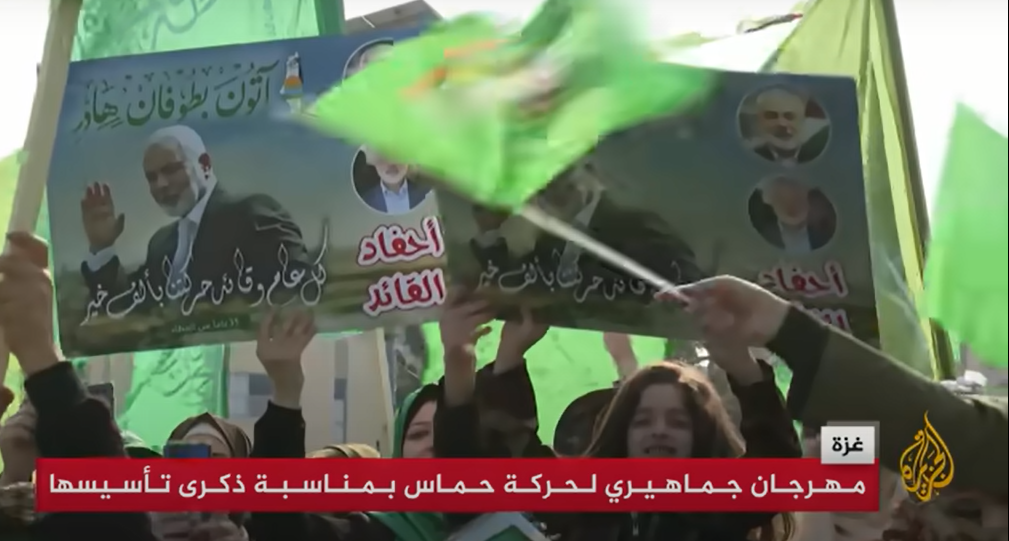Little debate seems to be taking place on the Palestinian streets in Judea, Samaria, and Gaza regarding the Hamas-led attack on Israeli settlements near Gaza on October 7, which many consider to have brought about a new Nakba (catastrophe) for the Palestinians.
It is apparent to Palestinians that the decision to launch the attack was made autonomously by Yahya Sinwar and Muhammad Def, reportedly concealed from the Hamas leadership abroad until shortly before the assault.
The severity of the Israeli response, resulting in the occupation of the entire Gaza Strip and the collapse of Hamas rule, caught them off guard.
Additionally, the unexpected success of Hamas forces infiltrating Israel, attributed to surprise and the IDF’s unpreparedness, challenged the prevailing notion in Israeli intelligence that “Hamas is deterred.”
Despite a reported death toll exceeding 23,000 and more than 50,000 injured or missing individuals, the majority of the population in Gaza continues to support Hamas.
Notably, Hamas controls humanitarian aid entering the Strip, confiscating some and selling the rest in local markets.
The pressing question is whether the high human cost paid by Gaza residents was justified.
Surprisingly, there seems to be no regret among the population, as every Palestinian questioned in Gaza asserted the absence of a soul-searching process.
Palestinians offer the following explanations for supporting Hamas despite the severe consequences:
- Heightened Hatred for Israel: Stemming from the blockade imposed on the Strip since 2007, Palestinians perceive Israel as a racist and colonialist state that dispossessed them of their lands in 1948. Hamas is seen as restoring dignity and pride, exacting revenge on Israel, especially for perceived desecrations of the Al-Aqsa Mosque.
- Global Attention to the Palestinian Cause: The October 7 massacre is believed to have elevated the Palestinian issue on the world agenda, garnering support for a two-state solution and the establishment of an independent Palestinian state with Jerusalem as its capital.
- Humiliation of the IDF: The attack purportedly humiliated and defeated the IDF, challenging its status as an invincible force in the Middle East.
This achievement is particularly significant given Hamas’s limited military capabilities compared to the IDF.
- Promotion of Jihad and Martyrdom: The belief that jihad and martyrdom are effective means to protect the Palestinian homeland and defeat the enemy.
Hamas, committed to its cause, is confident in its ability to overcome the IDF when the time is right.
These attitudes, prevailing after three months of intense conflict, raise concerns about the strong identification of Gaza residents with Hamas and their continued support for the actions that took place in the settlements surrounding Gaza.
The population in the Gaza Strip seemingly hopes that the IDF will not succeed in eliminating the Hamas military leadership, destroying all infrastructure, and freeing Israeli hostages.
The desire is for the IDF to withdraw without achieving its goals in the Gaza Strip.
While Israel faces the challenge of toppling Hamas rule and dismantling its military infrastructure, it must also grapple with the profound hatred instilled by Hamas over the years.
A crucial consideration is the need to transfer control over the hostile population to a Palestinian body that does not propagate hatred and violence against Israel, once the war objectives are accomplished.
This transition is seen as vital, particularly with the growing animosity among the younger generation.




